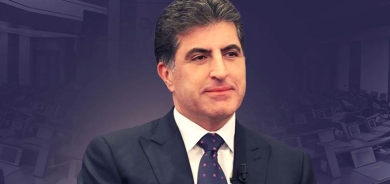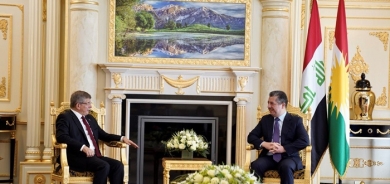Barak plays down talks of imminent attack against Iranian nuclear facilities

Barak was speaking on Israel’s Army Radio ahead of a planned visit this week by the United States armed forces chief General Martin Dempsey that has fired speculation Washington would press Israel to delay any action against Tehran’s nuclear program, according to Reuters.
The United States on Tuesday sidestepped suggestions it was not on the same page as Israel on the speed and efficacy of sanctions designed to reverse Iran’s nuclear drive.
Prime Minister Benjamin Netanyahu told Israeli lawmakers on Monday that the sanctions would not deter Tehran from building a nuclear weapon unless they targeted Iran's central bank and its petroleum sector.
But the White House preferred to highlight a comment the Israeli leader made to “The Australian” newspaper that Iran had begun to “wobble” under increasingly tough US and European Union punishments, according to AFP.
Asked whether Israel and Washington differed on the pace and method of measures to deter Iran, President Obama’s spokesman Jay Carney said it was a “demonstrable” fact that the power of current sanctions was unprecedented.
“We have worked very closely with the Israeli government, with the Prime Minister, as we do on a number of issues, and we believe that the approach we’ve taken has put unprecedented pressure on Iran to change its behavior.”
Carney said the sanctions had also started to provoke tensions within the Iranian regime, amid reports that the measures were having a direct impact on the Iranian economy and currency.
On Monday, in remarks transmitted through a spokesman, Netanyahu said “the current sanctions employed against Iran harm the Iranians, but not in a way that could bring to a halt in the country’s nuclear program.”
“Without significant sanctions on the central bank and petroleum exports, Iran will continue to advance its nuclear plans.”
But in the interview with “The Australian” Netanyahu had a more upbeat assessment of the sanctions regime.
“For the first time, I see Iran wobble under the sanctions that have been adopted and especially under the threat of strong sanctions on their central bank,” he said.
Obama signed into law a new set of U.S. sanctions on Iran last month which do target Iran's oil sector and seek to make foreign firms chose between doing business with Tehran or the United States.
The sanctions, which are not yet in place, were overwhelmingly voted through Congress after the Obama administration secured waivers to influence how they are carried out.
There were fears that increased sanctions on Iran’s central bank could force the global price of oil to suddenly soar, and actually give Tehran a financial windfall on its existing oil sales.
Rising oil prices could also crimp the fragile economic recovery in the United States and inflict pain on American voters in gas stations -- at a time when Obama is running for reelection next year.
The administration has been working to convince other producers to boost supplies to mitigate the impact of decreased Iranian oil on the global market and has asked some big consumers to cut purchases from Iran.
In response, Iran has threatened to close the Strait of Hormuz -- a major oil transportation route -- a step that the United States has warned it will not tolerate as tension rise in the Gulf.
Netanyahu’s comments followed reports that the United States has specifically warned Israel about the dangerous consequences of an Israeli military strike against Tehran's nuclear facilities.













